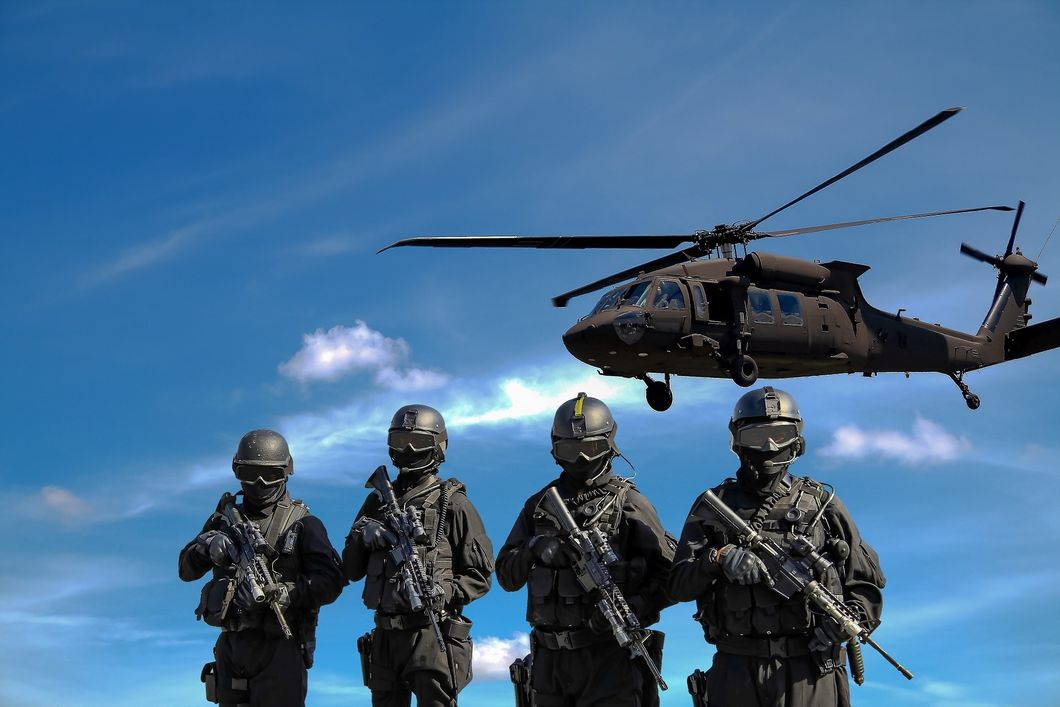War has been a topic of interest during the twenty-first century as both political and social environments across the globe have become heated. To make this idea of national conflict more intense, modern day technologies have advanced to such a degree that weapons of mass destruction, such as nuclear bombs, are able to demolish entire cities and wipe out whole populations of people. The United States, in particular, has had many overseas conflicts over the last century, resulting in the deaths of hundreds of thousands of soldiers and civilians. One aspect of war that has been relatively ignored since the conflict in Vietnam is the draft. All male American citizens of the age of 18 and 25 are required to enter the Selective Service System, should any wartime conflict arise and a draft needs to be resumed. The debate at hand is whether or not it is ethical to draft these young men to serve in the war effort, regardless of their feelings towards the political and militaristic conflict.
Advocates for the draft suggest that it is ethical on the grounds that it promotes happiness for citizens of both countries involved by fighting on the grounds of political, social, and human rights. For example, the Second World War fought in the early twentieth century resulted in many casualties, but prevented the tyrannical regimes of the Axis powers from ruling strongholds across the globes and denying humans their inherent rights; the war efforts at this time also ended mass genocides, such as the Holocaust, and brought temporary peace and stability to many parts of the world. With this perspective, the end result of war would produce more happiness for people after the conflict than during it; the sacrifices made during war, such as the death of millions, are outweighed ethically by promoting that the rights and happiness of the people are protected. These war efforts would not be accomplished, however, without the draft. The draft ensures that there will be citizens ready to fight and sacrifice their own lives for their countries with the hopes of promoting the foundational ideas of the nation and the well-being of its citizens.
While the argument above supporting wartime draft seems reasonable, it ignores an important aspect of the draft: it takes away a person's ability to choose. To tie this elimination of personal freedom and choice into ethics, let's turn to philosophical thinker Immanuel Kant's Deontology, which focuses on moral rules and reasons. The Principle of Humanity, also known as the Respect for Persons Principle, states that all people should be respected as a source of value and not used for their "mere humanity". This means that people should not set ends for others when they are able to ensure their own ends for themselves. When talking about the draft, young men are randomly selected by the American government to go and serve in the war effort, regardless of whether or not they support the conflict. By requiring all males ages 18 to 25 to enter into the draft, officials in the American government are merely using their humanity to support a battle that does not directly involve the individual and in essence, decides their ends for them. Therefore, it is not ethical to require men to enter a draft unless it is by their own accord. Many nations require a draft during times of war out of concern that not enough people would register to serve; without knowing whether or not enough people would sign up to fight, it is not fair to assume that there would be a shortage in soldiers willing to make the ultimate sacrifice for their country and its ideas. Aside from Kant's ideas, utilitarian perspectives support the argument that the draft is unethical as well, especially when analyzing the Greatest Happiness Principle. The Greatest Happiness Principle states that people ought to act in a way that promotes the greatest amount of happiness possible for the greatest number of people. While war and draft advocates may use this principle to support their violent, militaristic efforts, they forget to account for the fact that the result of war is not always a win. If a country loses a conflict, the number of lives sacrificed would not outweigh the potential happiness that could have resulted from a military victory. It's not worth the risk of drafting innocent men to serve and potentially die in war if a positive end to the conflict, and therefore, the happiness of the greatest number of people, is not ensured. Therefore, the draft does not increase happiness for all people, as men are forced to leave their families and loved ones and run the risk of having physical and psychological wounds, and even death. Happiness is not guaranteed by victory as well, because wartime veterans and their families struggle and endure great pain even after a wartime conflict has subsided.
Even though the draft is not in place now, the Selective Service System that all men are required to sign up for at age 18 is unethical. People should be given the freedom of choice when it comes to serving in war and the government should not use its citizens to further their own means for political supremacy in the world. Rather than force men to become soldiers and go to war, I believe that the United States should avoid wartime conflict and engage in more peaceful ways of resolving national issues, such as through treaties, peace talks, and even donating monetary or resource support for groups aligning with American values in war-torn countries. Only when conflicts become dire and threaten national security should the United States send troops to fight, but only if there is no draft and the soldiers had a choice in fighting for their country. War itself can be justified with ethics, but a forced draft is not an ethical act.














